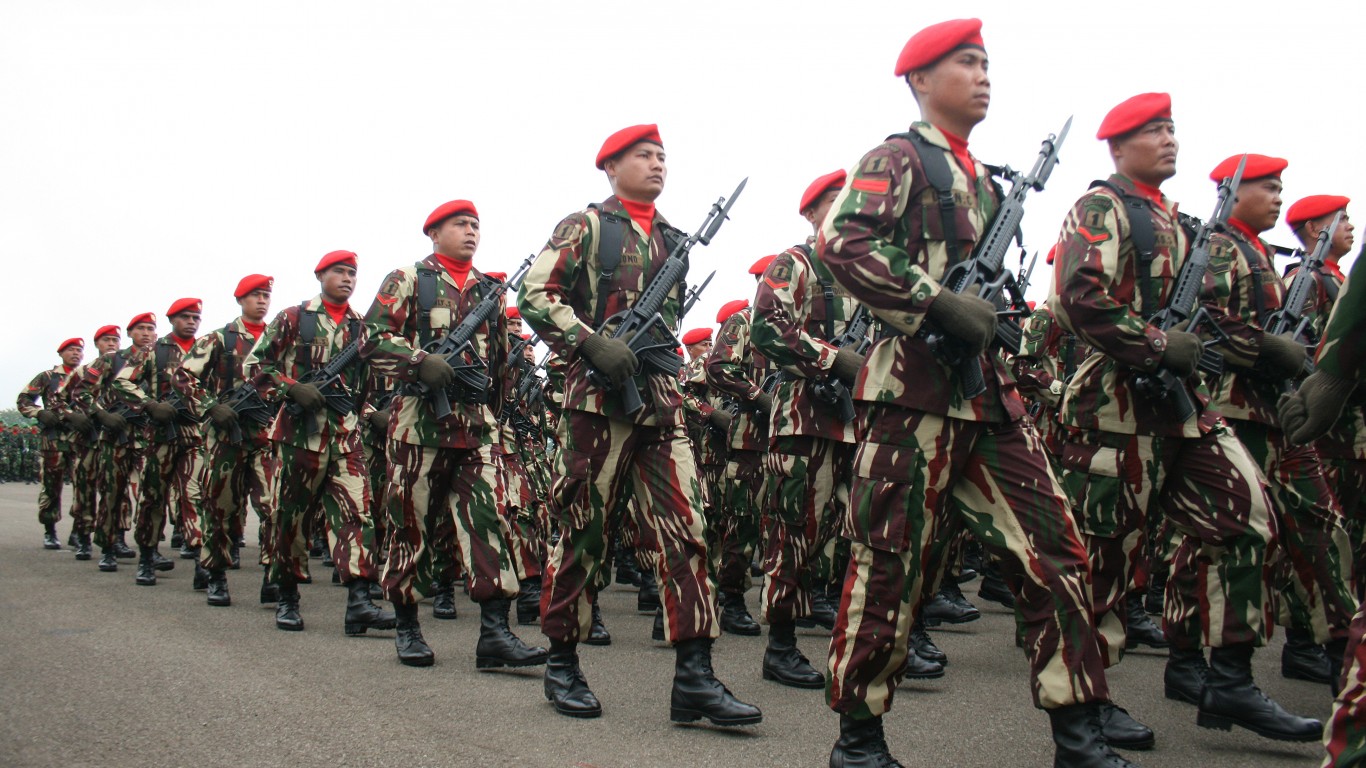
The world’s four largest superpowers — The United States, Russia, China, and India — control 22,872 active military aircraft and they spent almost $1.17 trillion on defense in 2020, well more than double the combined defense expenditures of 16 other top military powers. But which country has the strongest military might?
To determine the 20 countries with the strongest military might, 24/7 Wall St. reviewed Global Firepower’s 2022 Military Strength Ranking, which ranked 142 countries based on their PowerIndex, a composite of over 50 measures in categories such as military might, financials, logistical capability, and geography. The smaller the PowerIndex value the more powerful a nation’s theoretical fighting capability is — by conventional means as nuclear weapons were not taken into account. (These are the countries that control the world’s nuclear weapons.)
The U.S. vastly outspends all other military superpowers, devoting 3.7% of its gross domestic product to defense, 1 percentage point higher than the average for the 20 military powers on the list but less than the share of GDP devoted to defense by Pakistan, Russia, Israel, and Saudi Arabia, the latter of which commits 8.4% of GDP to defense. The U.S. also had the lowest PowerIndex score, indicating it has the strongest military might.
Russia has the second-largest military force and the second-largest number of warplanes, but its annual defense budget is glaringly small among the leading military superpowers — only $62 billion in 2020 compared to the $778 billion spent by the U.S. and $229 billion spent by the other NATO members on this list of the strongest militaries. Despite this, Russia has the second lowest PowerIndex score, indicating its military might is second only to the U.S.
Here are the countries with the strongest military might
Click here to see our detailed methodology
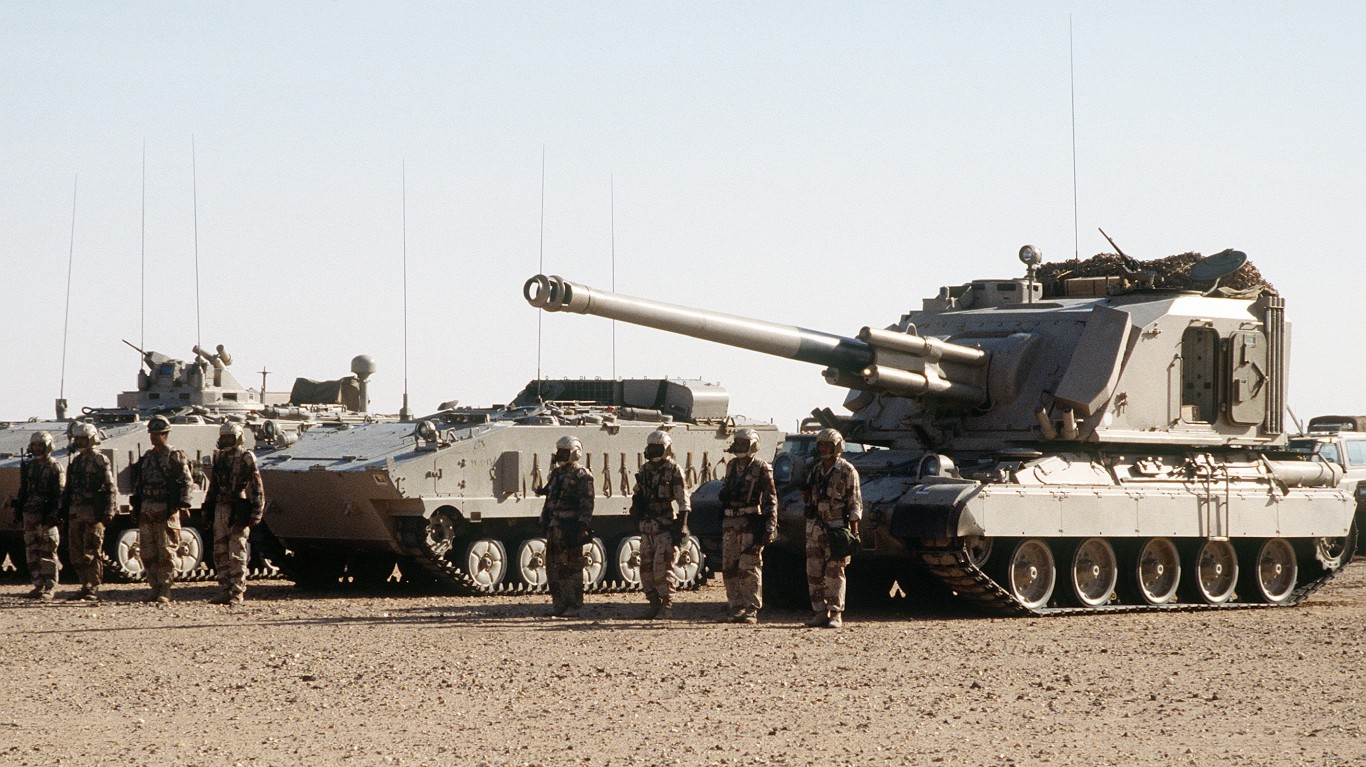
20. Saudi Arabia
> Global Firepower PowerIndex score: 0.297
> Armed forces personnel: 252,000 (1.7% of labor force)
> Active military aircraft: 897 (1.7% of global fleet)
> Defense expenditure, 2020: $57.5 (8.4% of GDP)
[in-text-ad]
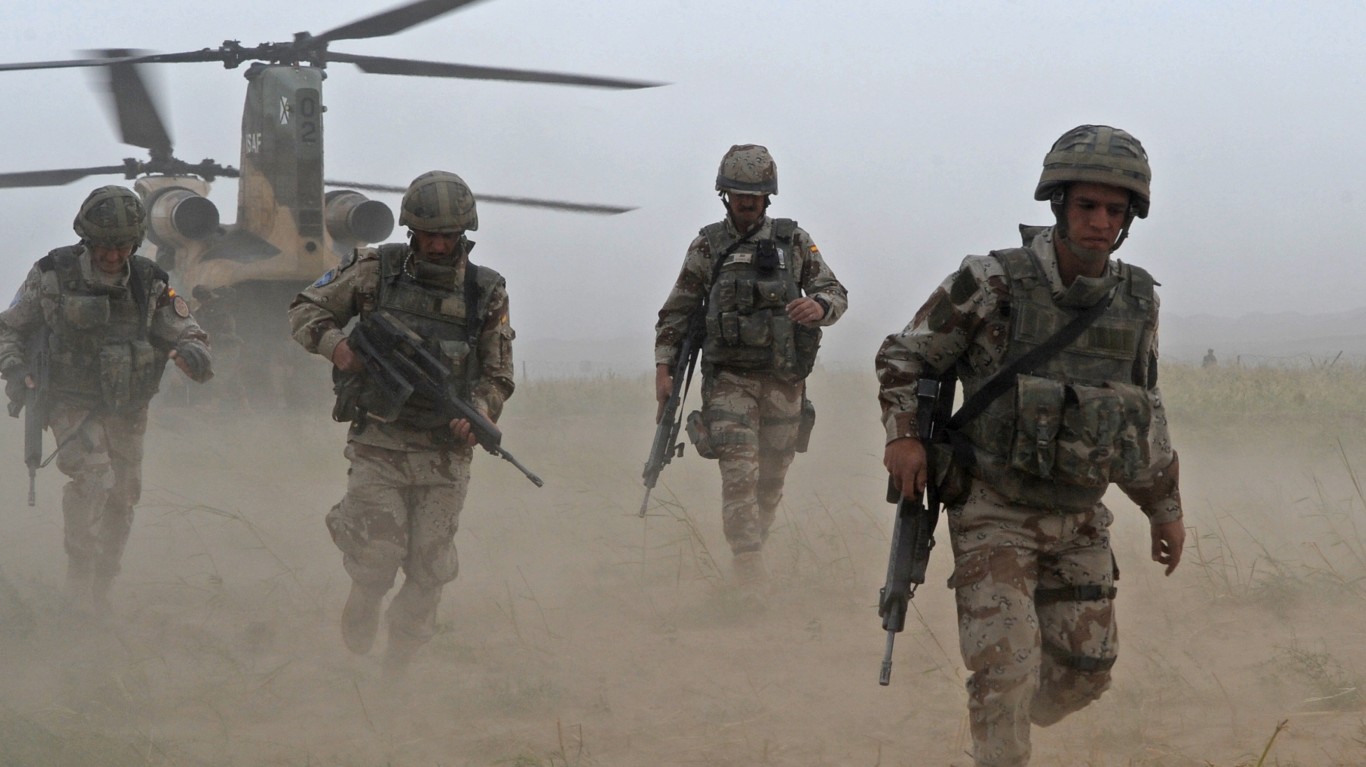
19. Spain
> Global Firepower PowerIndex score: 0.290
> Armed forces personnel: 199,000 (0.9% of labor force)
> Active military aircraft: 503 (0.9% of global fleet)
> Defense expenditure, 2020: $17.4 (1.4% of GDP)

18. Israel
> Global Firepower PowerIndex score: 0.262
> Armed forces personnel: 178,000 (4.3% of labor force)
> Active military aircraft: 597 (1.1% of global fleet)
> Defense expenditure, 2020: $21.7 (5.6% of GDP)
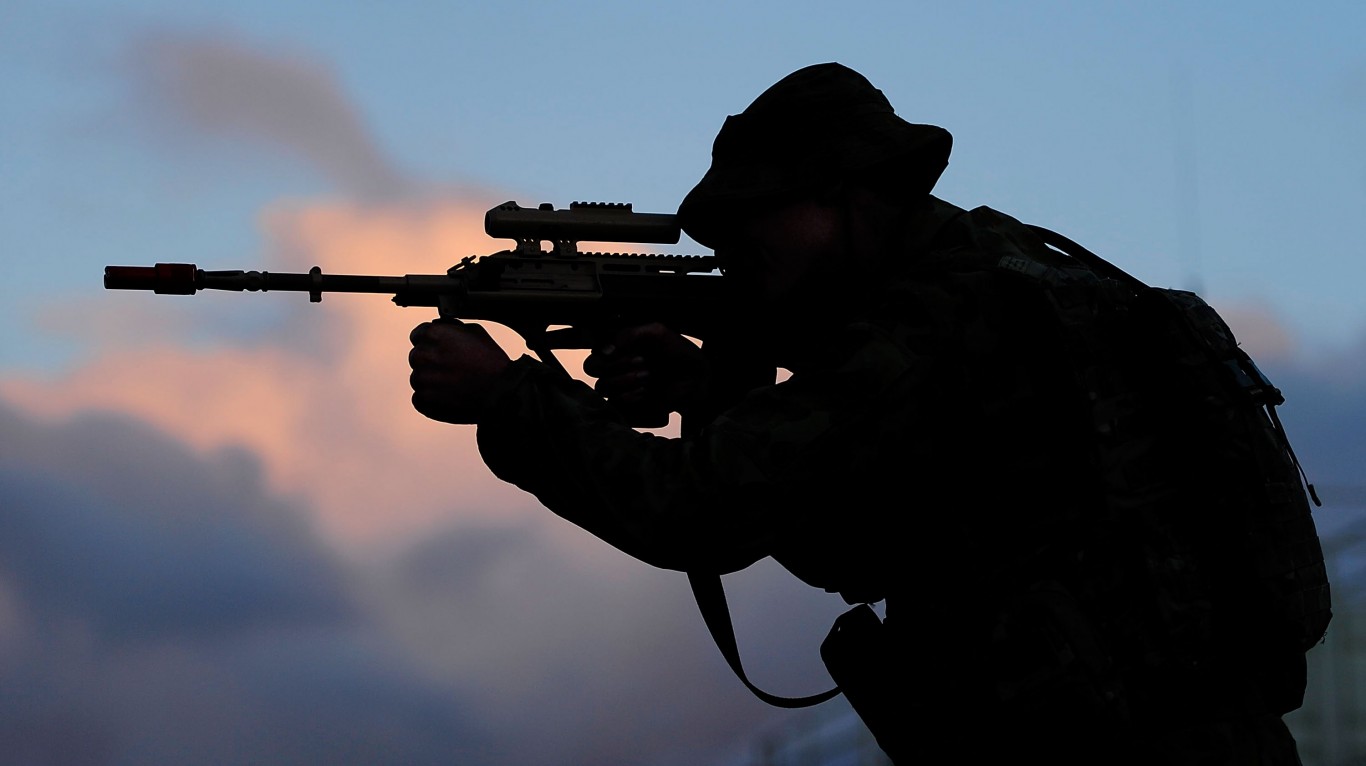
17. Australia
> Global Firepower PowerIndex score: 0.238
> Armed forces personnel: 59,000 (0.4% of labor force)
> Active military aircraft: 430 (0.8% of global fleet)
> Defense expenditure, 2020: $27.5 (2.1% of GDP)
[in-text-ad-2]
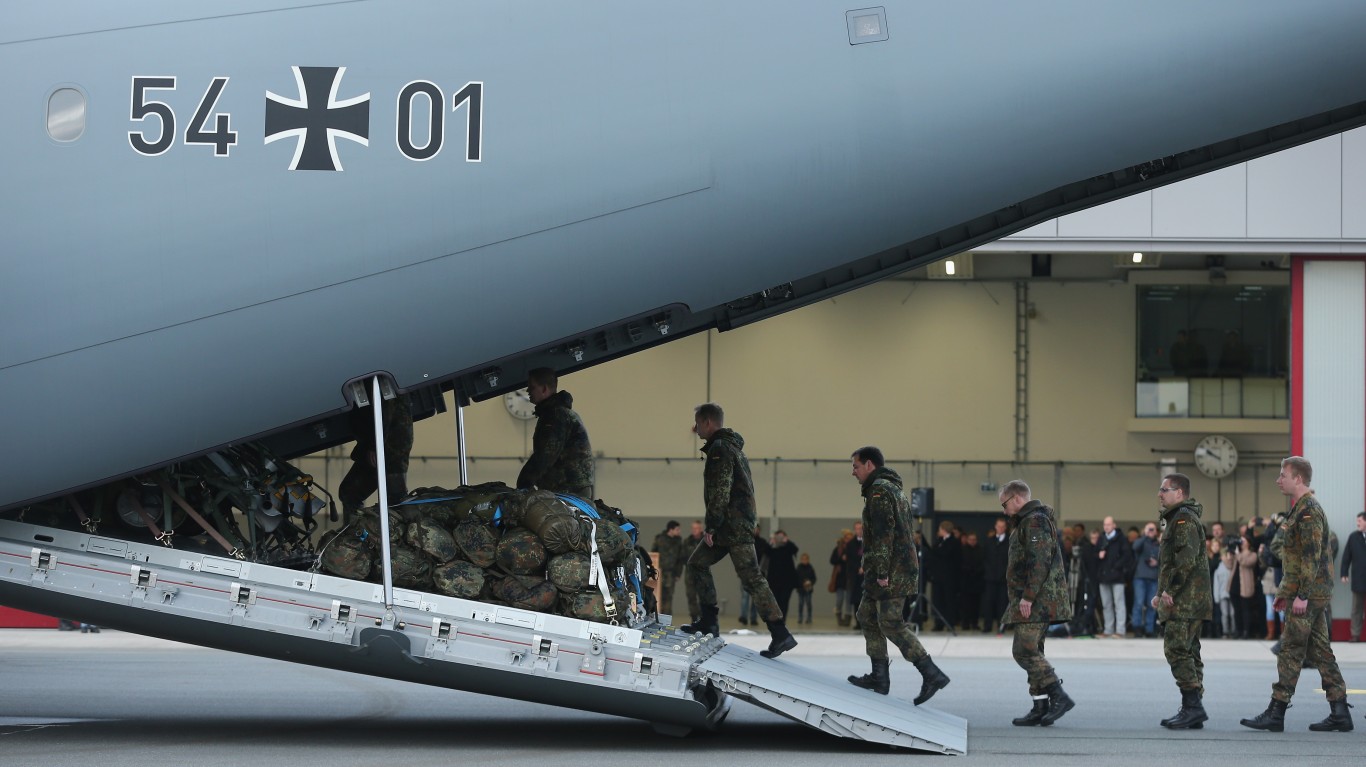
16. Germany
> Global Firepower PowerIndex score: 0.232
> Armed forces personnel: 184,000 (0.4% of labor force)
> Active military aircraft: 617 (1.2% of global fleet)
> Defense expenditure, 2020: $52.8 (1.4% of GDP)

15. Indonesia
> Global Firepower PowerIndex score: 0.225
> Armed forces personnel: 676,000 (0.5% of labor force)
> Active military aircraft: 462 (0.9% of global fleet)
> Defense expenditure, 2020: $9.4 (0.9% of GDP)
[in-text-ad]
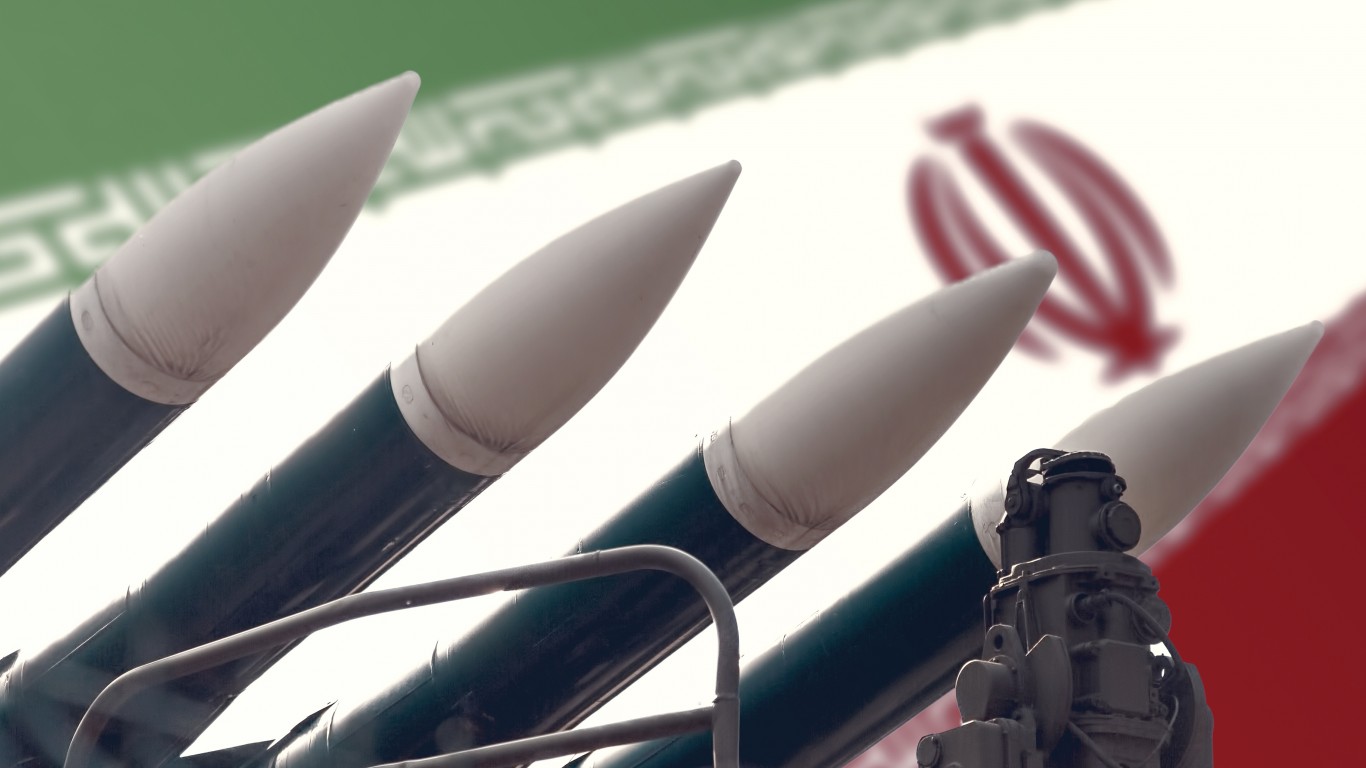
14. Iran
> Global Firepower PowerIndex score: 0.210
> Armed forces personnel: 650,000 (2.4% of labor force)
> Active military aircraft: 543 (1.0% of global fleet)
> Defense expenditure, 2020: $15.8 (2.2% of GDP)
13. Turkey
> Global Firepower PowerIndex score: 0.196
> Armed forces personnel: 512,000 (1.5% of labor force)
> Active military aircraft: 1,057 (2.0% of global fleet)
> Defense expenditure, 2020: $17.7 (2.8% of GDP)
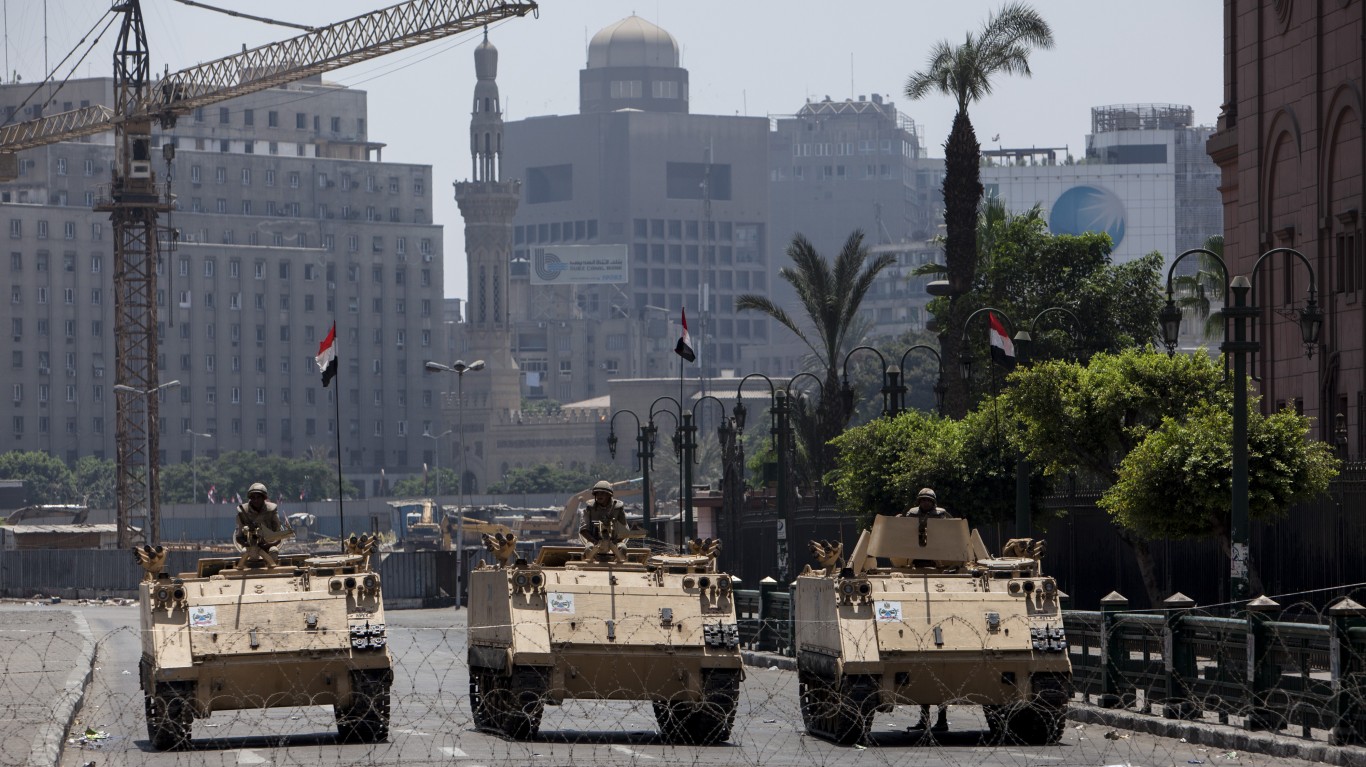
12. Egypt
> Global Firepower PowerIndex score: 0.187
> Armed forces personnel: 836,000 (3.0% of labor force)
> Active military aircraft: 1,062 (2.0% of global fleet)
> Defense expenditure, 2020: $4.5 (1.2% of GDP)
[in-text-ad-2]
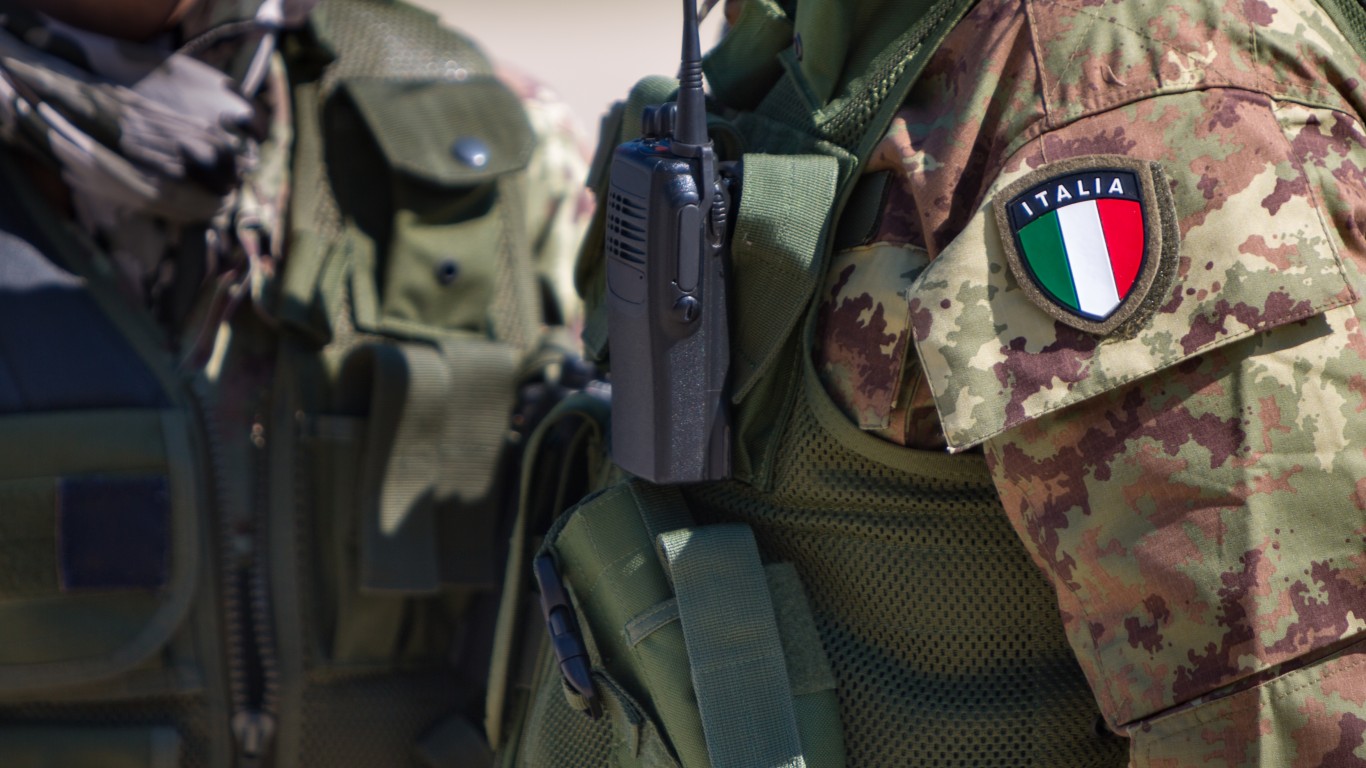
11. Italy
> Global Firepower PowerIndex score: 0.180
> Armed forces personnel: 342,000 (1.3% of labor force)
> Active military aircraft: 864 (1.6% of global fleet)
> Defense expenditure, 2020: $28.9 (1.6% of GDP)

10. Brazil
> Global Firepower PowerIndex score: 0.170
> Armed forces personnel: 762,000 (0.7% of labor force)
> Active military aircraft: 669 (1.3% of global fleet)
> Defense expenditure, 2020: $19.7 (1.4% of GDP)
[in-text-ad]
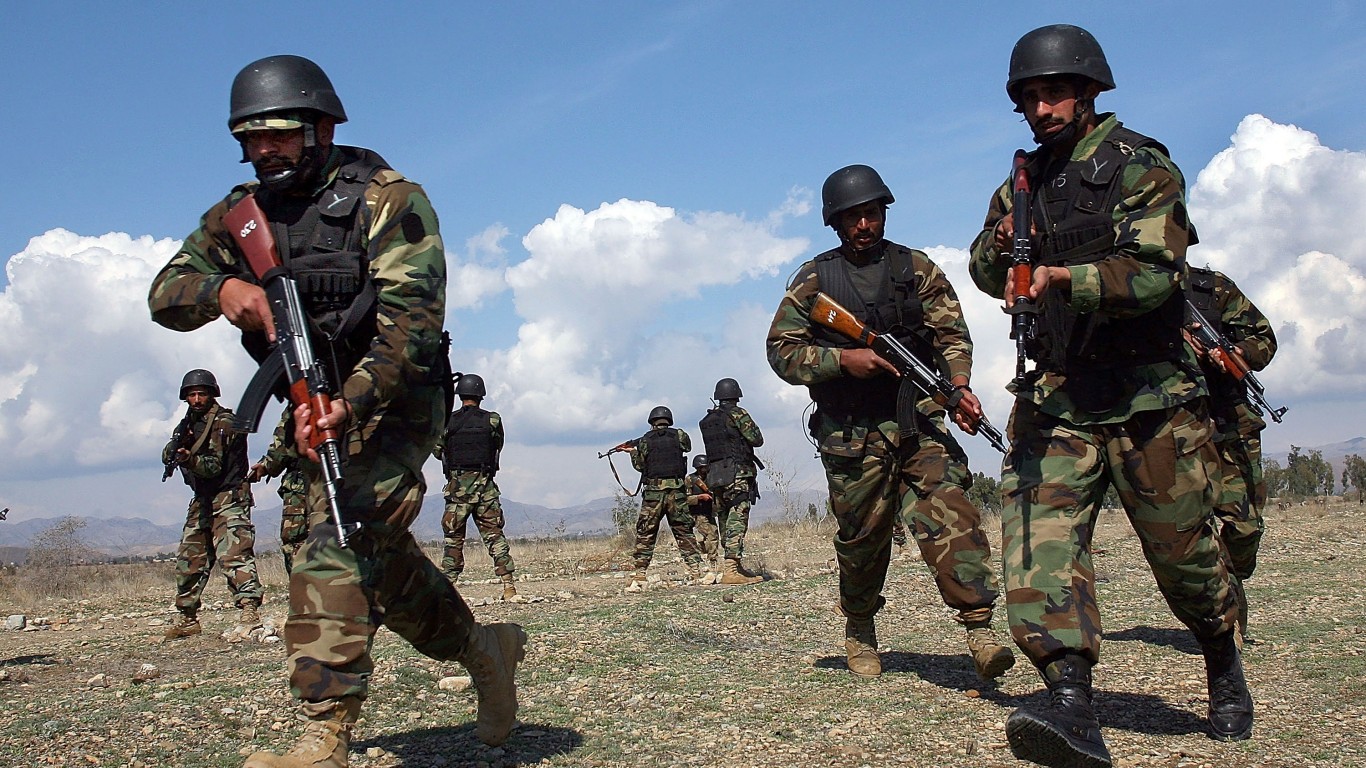
9. Pakistan
> Global Firepower PowerIndex score: 0.157
> Armed forces personnel: 943,000 (1.3% of labor force)
> Active military aircraft: 1,387 (2.6% of global fleet)
> Defense expenditure, 2020: $10.4 (4.0% of GDP)
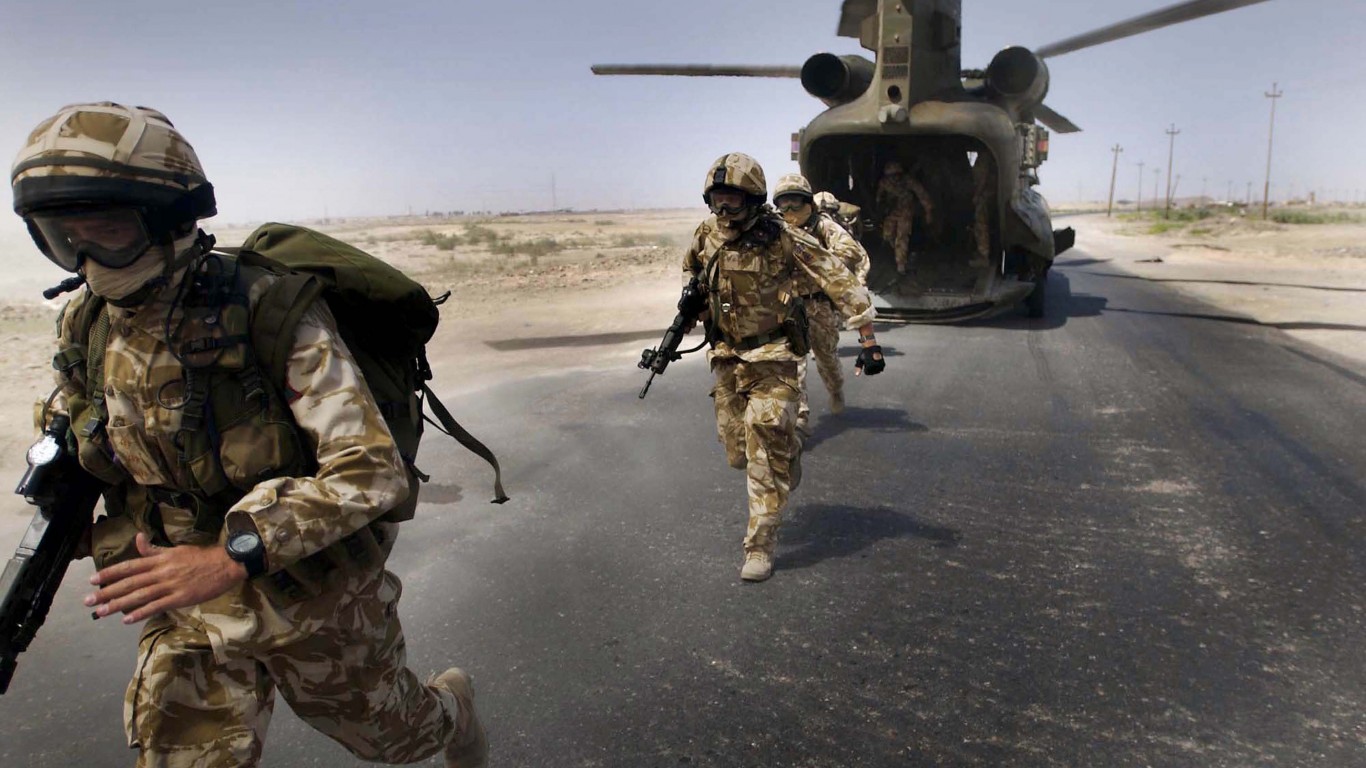
8. United Kingdom
> Global Firepower PowerIndex score: 0.138
> Armed forces personnel: 149,000 (0.4% of labor force)
> Active military aircraft: 693 (1.3% of global fleet)
> Defense expenditure, 2020: $59.2 (2.2% of GDP)

7. France
> Global Firepower PowerIndex score: 0.128
> Armed forces personnel: 304,000 (1.0% of labor force)
> Active military aircraft: 1,055 (2.0% of global fleet)
> Defense expenditure, 2020: $52.7 (2.1% of GDP)
[in-text-ad-2]
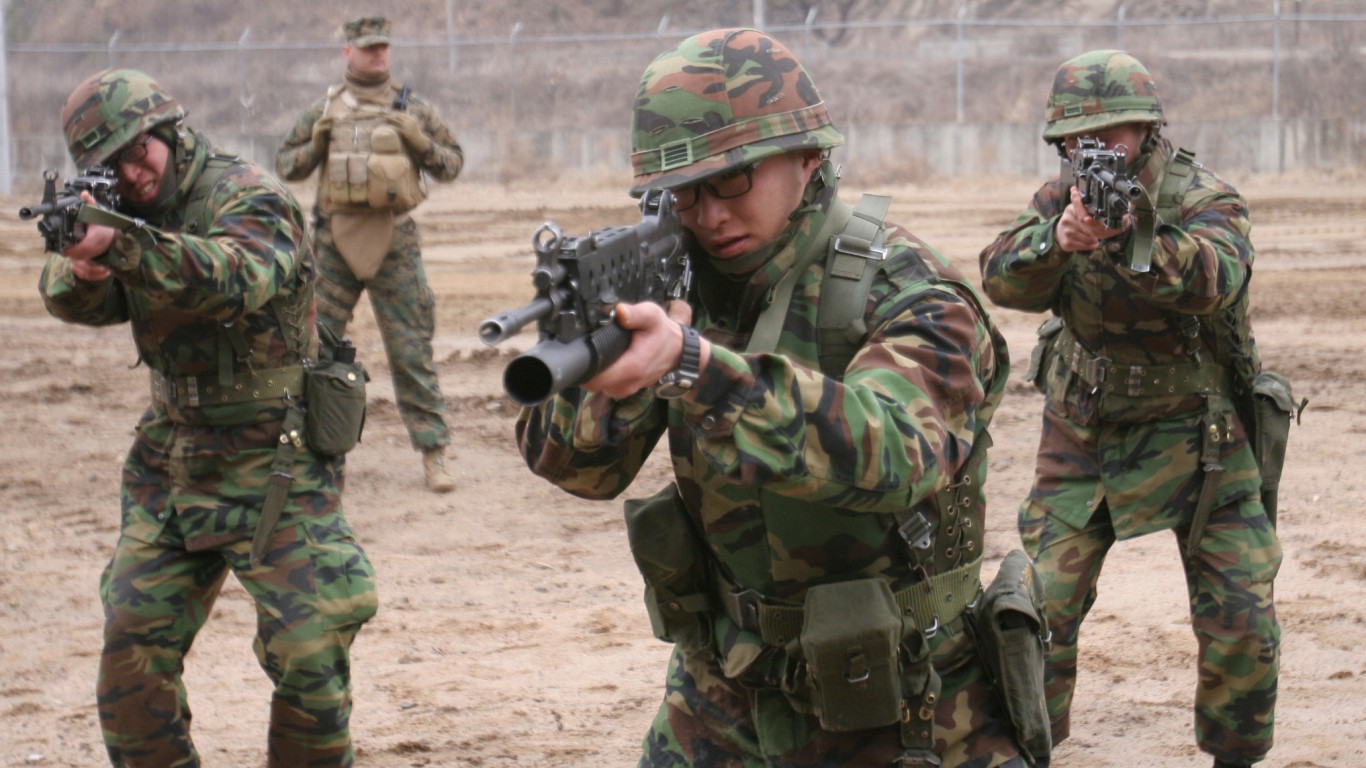
6. South Korea
> Global Firepower PowerIndex score: 0.126
> Armed forces personnel: 613,000 (2.1% of labor force)
> Active military aircraft: 1,595 (3.0% of global fleet)
> Defense expenditure, 2020: $45.7 (2.8% of GDP)
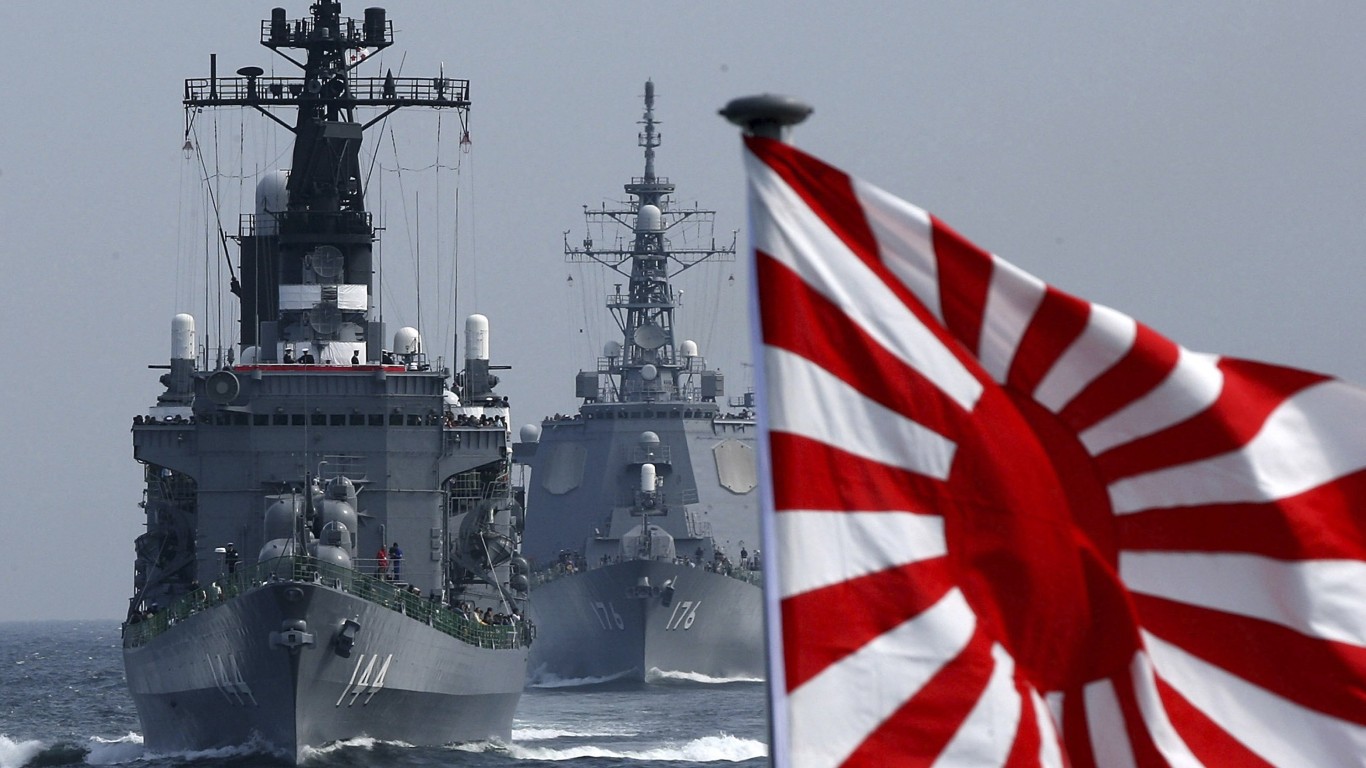
5. Japan
> Global Firepower PowerIndex score: 0.120
> Armed forces personnel: 261,000 (0.4% of labor force)
> Active military aircraft: 1,449 (2.7% of global fleet)
> Defense expenditure, 2020: $49.1 (1.0% of GDP)
[in-text-ad]

4. India
> Global Firepower PowerIndex score: 0.098
> Armed forces personnel: 3,045,000 (0.6% of labor force)
> Active military aircraft: 2,167 (4.1% of global fleet)
> Defense expenditure, 2020: $72.9 (2.9% of GDP)
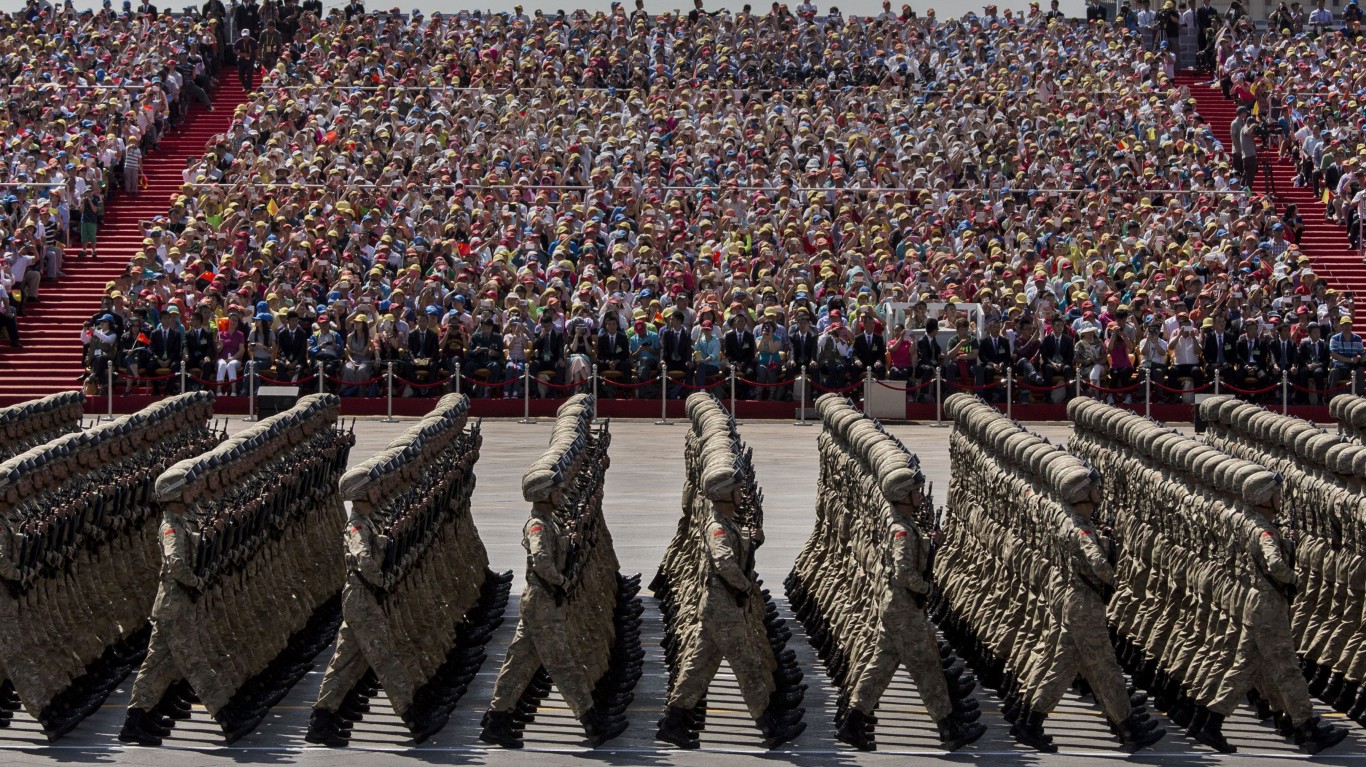
3. China
> Global Firepower PowerIndex score: 0.051
> Armed forces personnel: 2,535,000 (0.3% of labor force)
> Active military aircraft: 3,285 (6.2% of global fleet)
> Defense expenditure, 2020: $252.3 (1.7% of GDP)
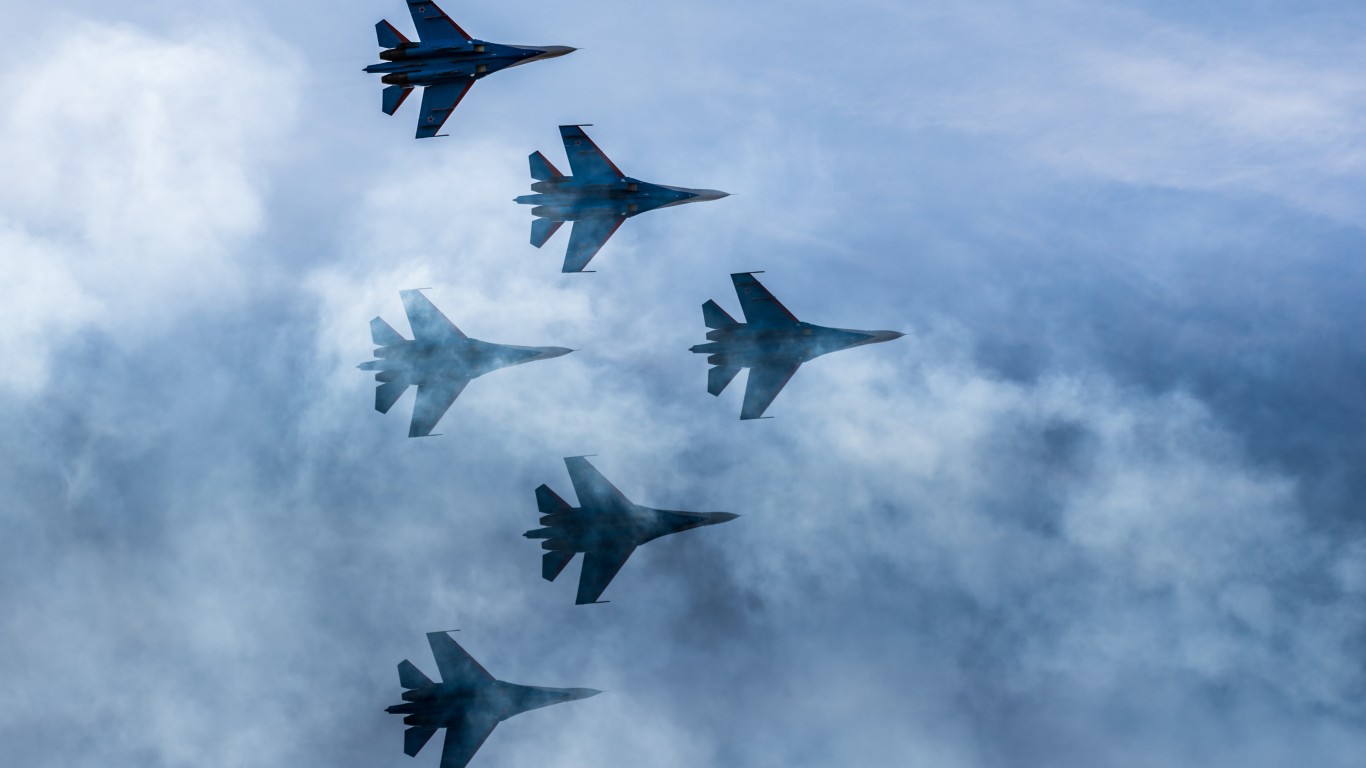
2. Russia
> Global Firepower PowerIndex score: 0.050
> Armed forces personnel: 1,454,000 (2.0% of labor force)
> Active military aircraft: 4,173 (7.8% of global fleet)
> Defense expenditure, 2020: $61.7 (4.3% of GDP)
[in-text-ad-2]
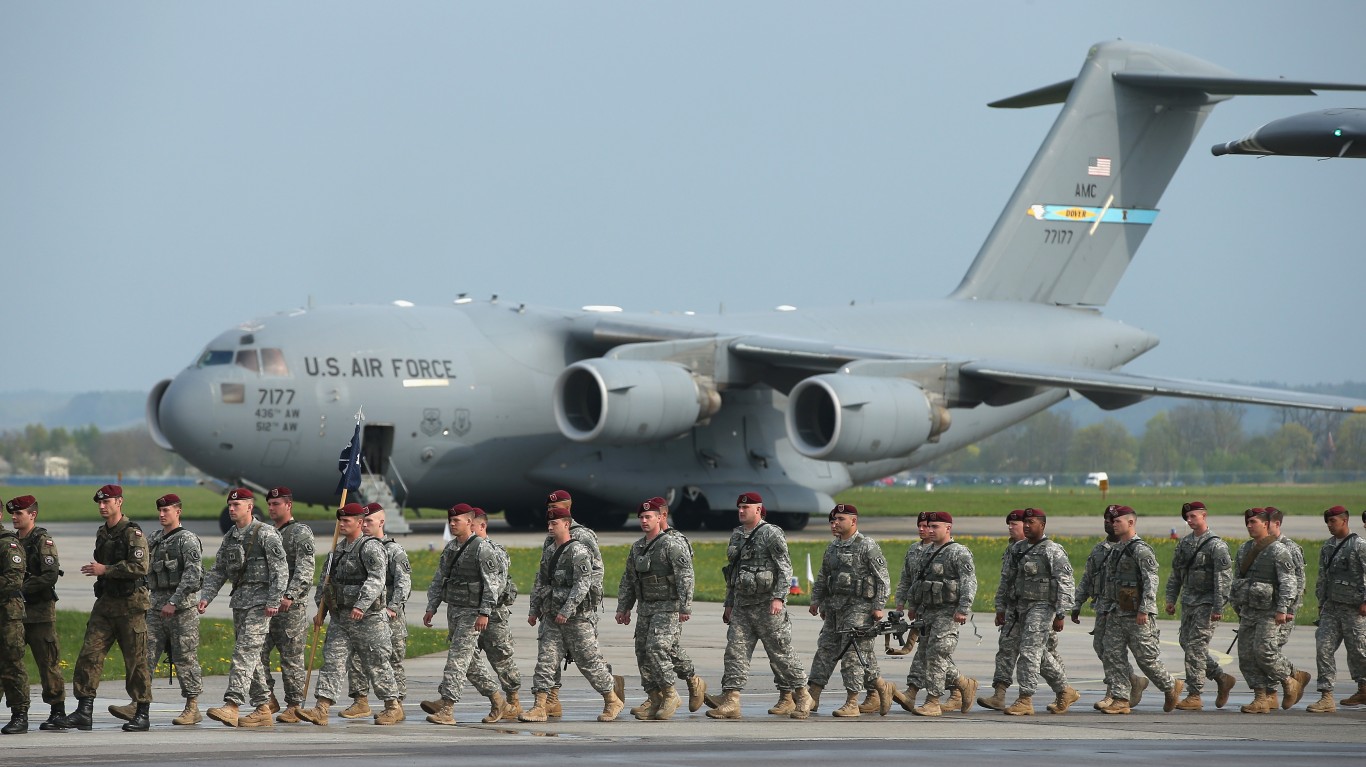
1. United States
> Global Firepower PowerIndex score: 0.045
> Armed forces personnel: 1,388,000 (0.8% of labor force)
> Active military aircraft: 13,247 (24.9% of global fleet)
> Defense expenditure, 2020: $778.2 (3.7% of GDP)
Methodology
To determine the countries with the strongest military might, 24/7 Wall St. reviewed data from Global Firepower, a part of the Military Factory network of sites. Countries were ranked based on the GFP’s 2022 Military Strength PowerIndex, a composite of over 50 factors measuring such categories as military might, financials, logistical capability, and geography.
The smaller the PowerIndex value the more powerful a nation’s theoretical fighting capability is — by conventional means as nuclear weapons were not taken into account. (Though a perfect PowerIndex score is 0.0, such a score is currently unattainable given the scope of the study, Global Firepower explains.)
Data on armed forces personnel and armed forces personnel as a percentage of the labor force came from the International Institute for Strategic Studies, which used World Bank data, and is for 2019. Data on the number of active military aircraft came from FlightGlobal and is for 2021. Data on military expenditure in 2020 came from the Stockholm International Peace Research Institute.
Is Your Money Earning the Best Possible Rate? (Sponsor)
Let’s face it: If your money is just sitting in a checking account, you’re losing value every single day. With most checking accounts offering little to no interest, the cash you worked so hard to save is gradually being eroded by inflation.
However, by moving that money into a high-yield savings account, you can put your cash to work, growing steadily with little to no effort on your part. In just a few clicks, you can set up a high-yield savings account and start earning interest immediately.
There are plenty of reputable banks and online platforms that offer competitive rates, and many of them come with zero fees and no minimum balance requirements. Click here to see if you’re earning the best possible rate on your money!
Thank you for reading! Have some feedback for us?
Contact the 24/7 Wall St. editorial team.
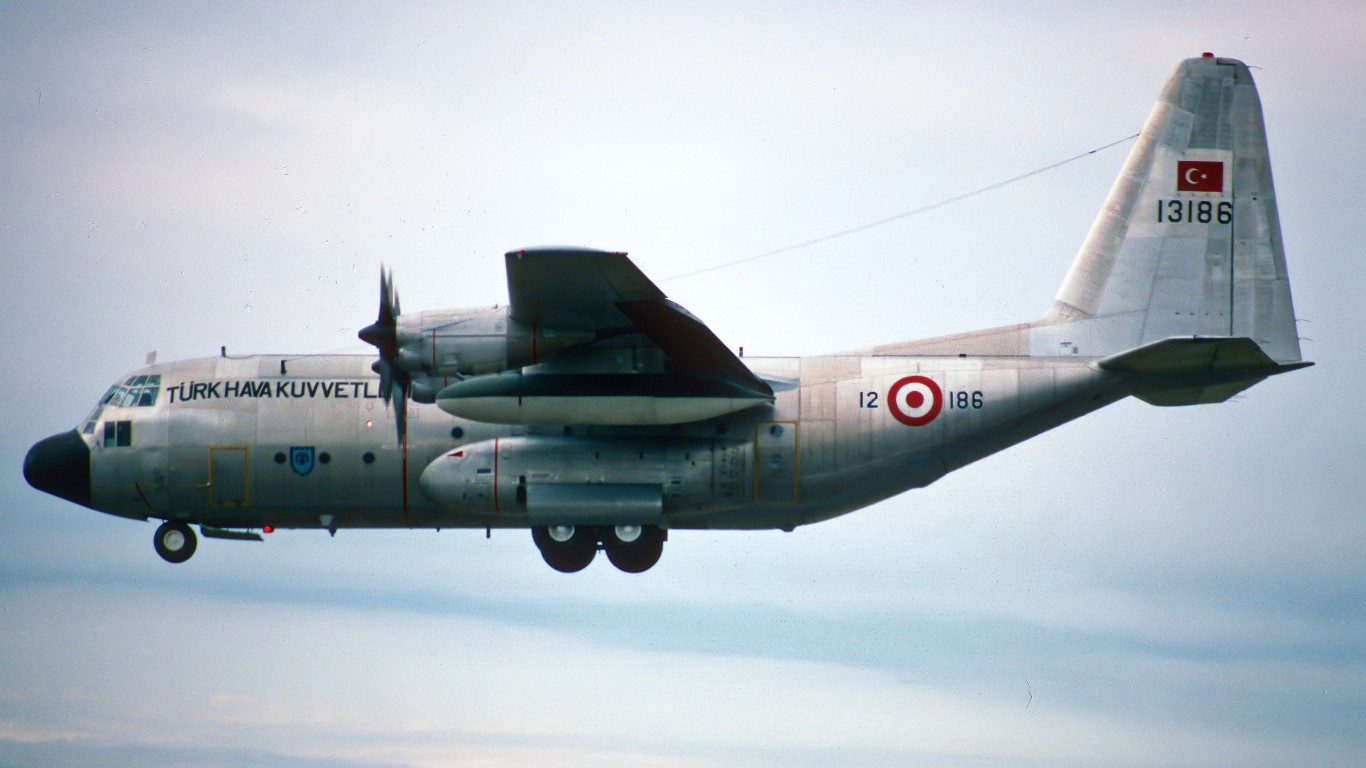
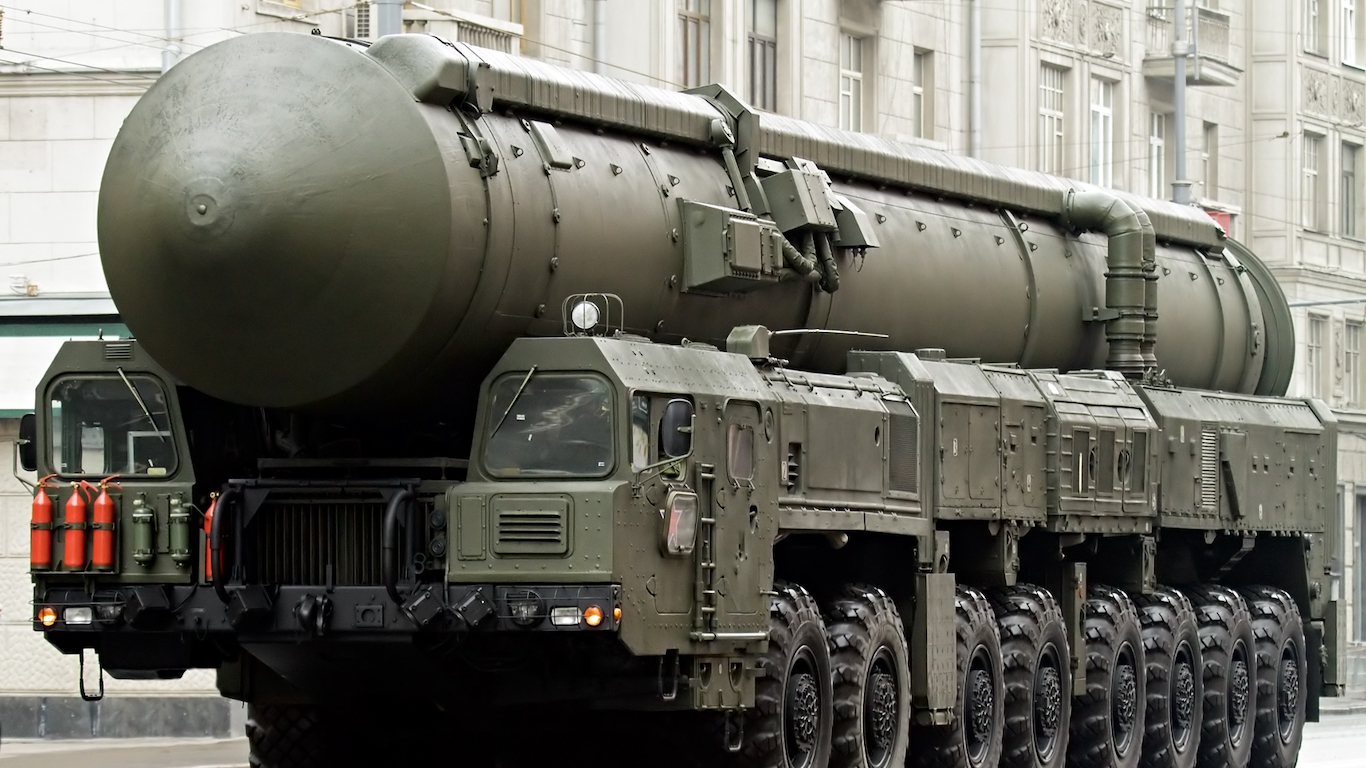 24/7 Wall St.
24/7 Wall St.